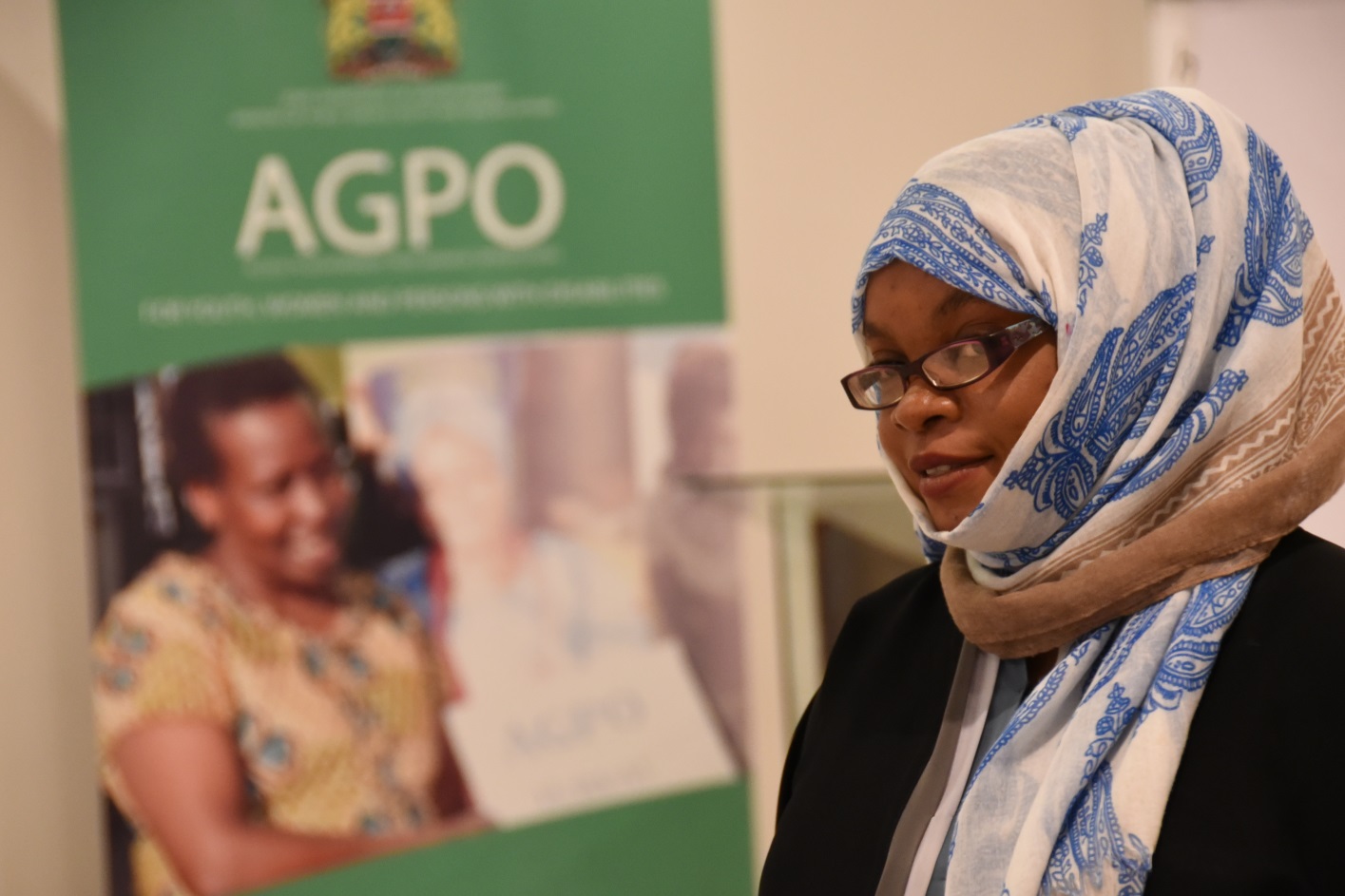Forging innovative solutions for women in public procurement
Date:

The State Department of Gender Affairs and National Treasury with support from UN Women are conducting the second phase of grassroot sensitization trainings to women on the 30% public procurement allocation for women youth and persons with disabilities that targeted women from the county level including Mombasa, Bungoma, Kisumu and Turkana. In collaboration with partners, over 1000 women entrepreneurs have been sensitized in Kenya.
“As a woman starting in this public procurement industry, the first hurdle you will face is the lack of finances to service the tenders once you secure one. The financial institutions take a long time to process loans and most women could not meet the requirements.” This is according to 26 year old Amina Hassan Mwafrika, a resident of Kilifi County and a beneficiary of the 30% public procurement business opportunities for women, youth and persons with disability.
UN Women in Kenya supported an assessment on the uptake of 30% public procurement business opportunities for women, youth and persons with disability at the county level commissioned by the State Department of Gender Affairs aimed at assessing the level of awareness and identifying existing barriers that prevent women, youth and PWDS from utilizing the Access to Government Procurement opportunities (AGPO). The assessment highlighted access to funding (in terms of requirements and timeliness) and awareness of the initiative as the main challenges women face.
Ms. Amina Hassan is part of a group of three women who own independent companies that deal with public procurement within the county. The three came together to address the challenge of financing they all faced independently.
“I initially used to run, a small unregistered business dealing with poultry and groceries. The returns were meager and could barely support me and my family. After being exposed to the benefits of registering my business during training on AGPO by the county government, is when I decided to try it out.” She recalls.
“The journey has not been smooth and to climb the public procurement ladder and competitively compete with men, who own big business, I decided to put myself out there, get that experience and build my profile.” Said Ms. Amina
“This meant that I had to find sources to fund these tenders and not getting this in time meant that I had to forfeit the tender. I serviced my first tender with my personal savings but this could only go so far as I had other tenders to service too.
Like Amina, Marion Suleiman is 21 years old and already a director to her own company. She attributes her success to the trainings she has had so far and has so far managed to secure two tender in Supplies of electrical appliances. However, she too faces financial challenges as the tenders were small and the remaining profit cannot take service another tender after deducting her upkeep.
“I gained interest in starting my own company once I finished my high School and realizing this was one of my proudest moments. It took me six months upon registration to get my first tender and through it all, my main obstacle has been financing.
Pool funding
From this emerged a tale of resilience among these women through innovative approaches to solve this obstacle by forming an umbrella to self-fund each other.
Already there exists funding institutions that we could approach but it was either the requirements were too high to meet or the turnaround time for processing the funding was too long and by the time you have the liquid cash it was too late and you had to forfeit the tender to others with the financial muscle. Upon securing and funding a tender, the payment would take longer than anticipated and you could not service any tender secured in the meantime.
“During one of the trainings is where I met Marion and a few others and we decided to form an umbrella that would help us finance each other.
The idea was to pool our resources so as to self-fund our tenders. This was because most of the time only one of us would have secured a tender and we would help her service it and once her payment comes through, she would assist fund the other and so on and so forth.
As per the UN Women Commissioned assessment, Kilifi County despite setting aside 1.5 Billion in the 2016/2017 financial year for the special groups, utilization is still low by the groups with the registered and qualified persons with AGPO certificates standing at 863 of which 285 are women, 565 youth and 13 PWDs.
According to Marion, women need to be bold and venture more in business and not fear the challenges that comes with it as it is through these that they thrive.